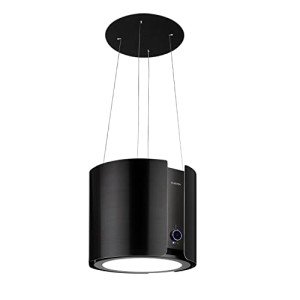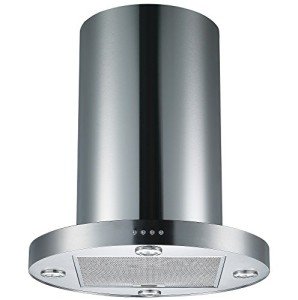10 Healthy Island Cooker Hoods Habits
페이지 정보

본문
The Ultimate Guide to Island Cooker Hoods
Island cooker hoods are critical in modern-day kitchen design, serving both functional needs and aesthetic choices. As kitchen areas evolve into social centers, the significance of reliable ventilation and stylish appliances has actually never ever been more pronounced. This short article will explore the functions, benefits, types, installation considerations, and upkeep of island cooker hood for island hoods.
What is an Island Cooker Hood?
An island cooker hood is a ventilation system suspended above a kitchen island cooktop. Unlike wall-mounted hoods, these gadgets are created for open layouts where the cooktop is set up on an island, enabling an unblocked view and a sophisticated cooking experience. These hoods can effectively remove smoke, odors, and air-borne grease, making sure the kitchen remains fresh and Cooker island totally free of contaminants.
Key Features of Island Cooker Hoods
Island cooker island hoods feature numerous features that improve their performance and aesthetic appeal. Below is an extensive list of some typical functions:
- Suction Power: Measured in cubic feet per minute (CFM), this suggests the volume of air the hood can efficiently filter.
- Noise Level: The noise produced by the motor, generally determined in sones or decibels.
- Lighting: Integrated lighting to brighten the cooking location listed below.
- Filters: Charcoal or metal filters that can trap grease and smells.
- Ducted or Ductless Options: Ducted range hoods for islands vent air outside the home, while ductless hoods filter and recirculate the air back into the kitchen.
- Control Options: Touch controls, push-button controls, or smartphone compatibility for simple performance.
Benefits of Installing an Island Cooker Hood
Investing in an island cooker hood features a wide variety of advantages:
- Effective Ventilation: Ensures the kitchen stays smoke and odor-free.
- Aesthetic Appeal: Adds an elegant focal point above the kitchen island.
- Increased Property Value: A contemporary setup can boost the overall value of a home.
- Improved Air Quality: Regularly venting out heat and moisture promotes a healthier cooking environment.
Types of Island Cooker Hoods
When choosing an island cooker hood, it's important to think about the type that best matches the kitchen's requirements. Here's a breakdown of the different types available on the marketplace:
Ducted Island Hoods:
- Vents air outside through ducts.
- More effective in removing grease and smoke.
Ductless Island Hoods:
- Filters air within and recirculates it back into the kitchen.
- Much easier to set up since no ductwork is needed.
Convertible island cooker extractor hood Hoods:
- Can run as either ducted or ductless depending on the setup requires.
Wall-Mounted Island Hoods:
- Attached to the wall instead of hanging straight over the island.
Chimney Style Island Hoods:
- Feature a chimney-like structure and provide high suction power.
Installation Considerations
Installing an island cooker hood needs cautious planning and execution. Here are some essential factors to consider:
- Height: The hood should be set up a minimum of 30 to 36 inches above the cooktop for ideal performance and security.
- Ductwork: For ducted hoods, ensure proper ducting and venting work to prevent any air leaks.
- Electrical Requirements: Check regional structure codes for any circuitry and electrical installation standards.
- Area: Measure the kitchen island location to choose the properly sized hood.
Maintenance Tips for Island Cooker Hoods
Routine maintenance of island cooker hoods is essential for ensuring their effectiveness and longevity. Here are some maintenance suggestions:
- Clean Filters Regularly: Depending on use, tidy or replace filters every 1 to 3 months.
- Wipe the Surface: Clean the exterior and interior of the hood with moderate cleaning agents to prevent grease accumulation.
- Inspect for Blockages: Ensure that ducts are clear of obstructions.
- Service the Motor: Periodically examine the motor and request expert maintenance if any unusual noises are detected.
Regularly Asked Questions (FAQs)
1. How much CFM does an island cooker hood require?
The CFM requirement generally depends upon the size of the cooktop and the cooking style. As a general rule, prepare for 100 CFM for every 12 inches of cooking surface area.
2. Can I install a ductless island cooker hood if I have insufficient ductwork?
Yes, ductless island hoods are a great alternative if ductwork is not viable. Ensure you use premium carbon filters extractor fan for island reliable smell and grease elimination.
3. How do I understand if my island cooker hood is appropriately installed?
Confirm that there is no extreme sound, the easy work, and the hood successfully removes smoke and smells when in operation, showing proper installation and functionality.
4. How often should I clean my island hood cooker hood?
Standard practice recommends cleaning up the filters monthly and carrying out a much deeper tidy of the outside and interior every 3 to 6 months.
5. Are there energy-efficient choices available for island cooker hoods?

Yes, there are energy-efficient island cooker hoods that use advanced technology to minimize energy consumption while keeping strong ventilation abilities.
Island cooker hoods play an essential role in modern kitchen areas, using effective ventilation options while boosting the kitchen's visual appeal. They can be found in numerous designs and features, catering to diverse needs and preferences. With correct installation and routine upkeep, these devices can significantly enhance air quality, contribute to healthier cooking environments, and elevate the general appearance of the kitchen area. By thinking about longevity and performance, property owners can make informed choices that line up with their cooking habits and kitchen designs.

- 이전글Guide To Childrens White Bunk Beds: The Intermediate Guide Towards Childrens White Bunk Beds 25.05.20
- 다음글13 Things You Should Know About Island Hob That You Might Not Have Known 25.05.20
댓글목록
등록된 댓글이 없습니다.